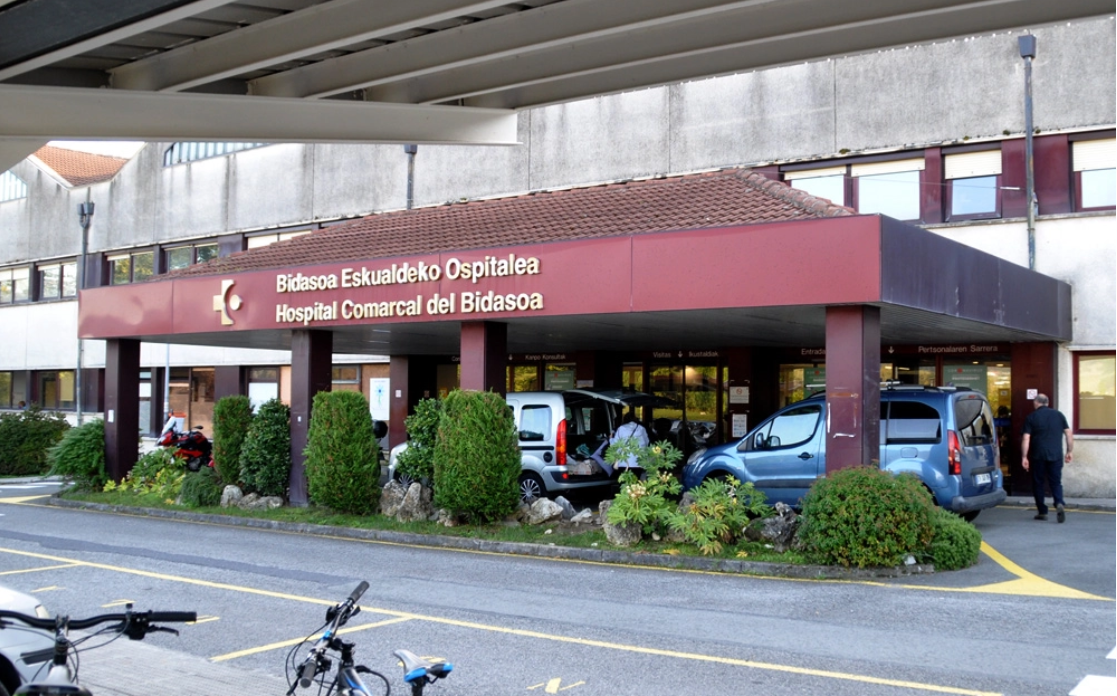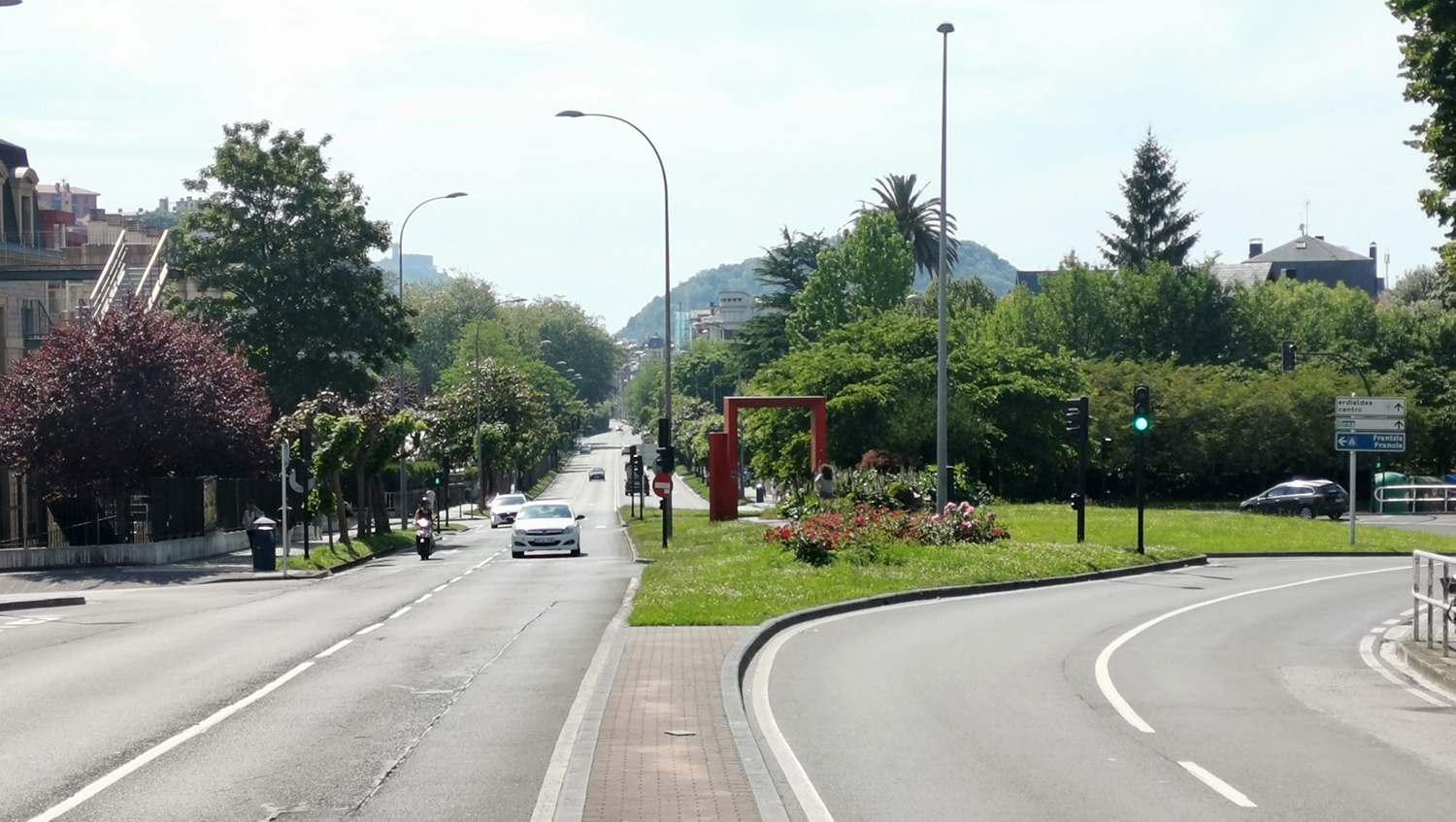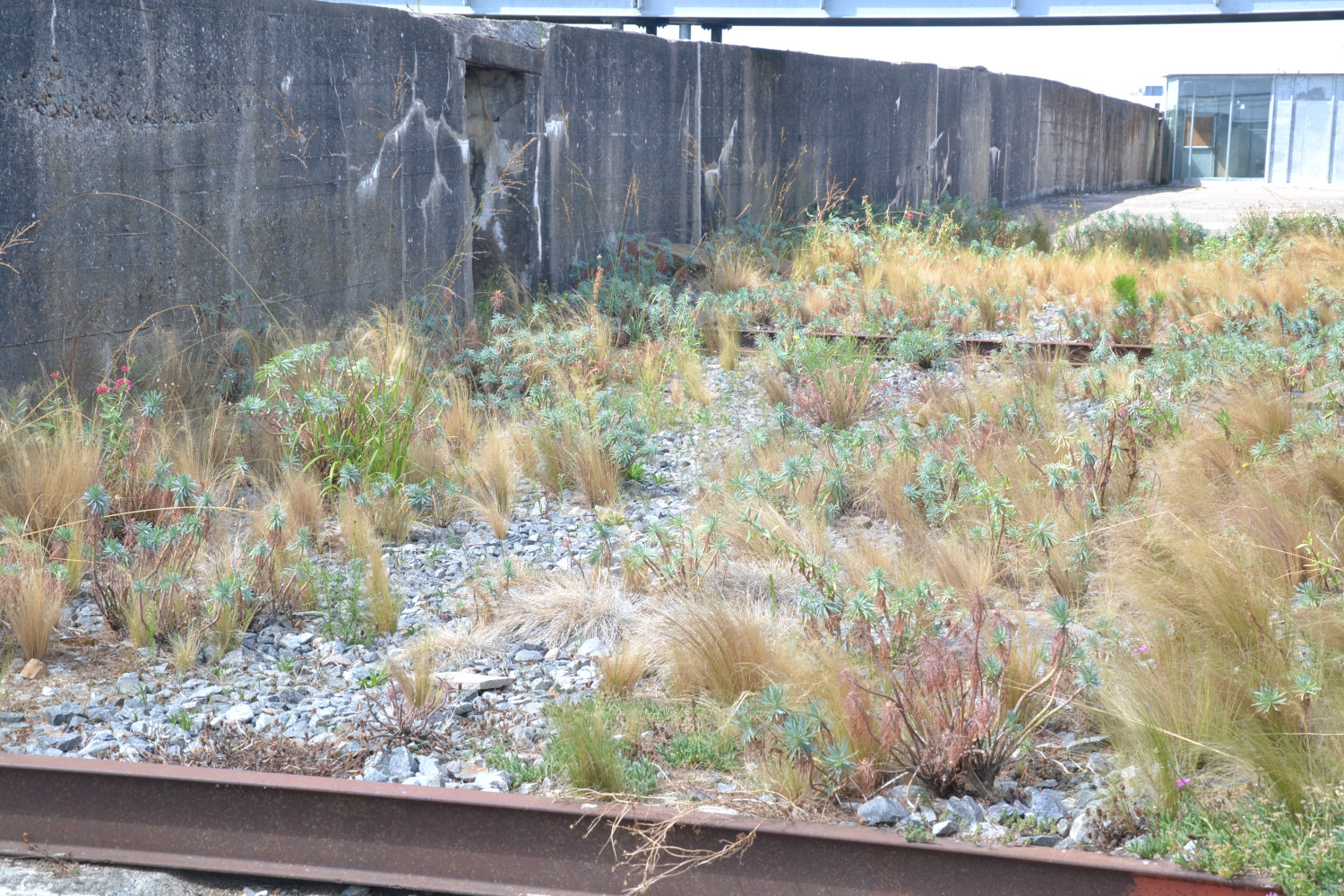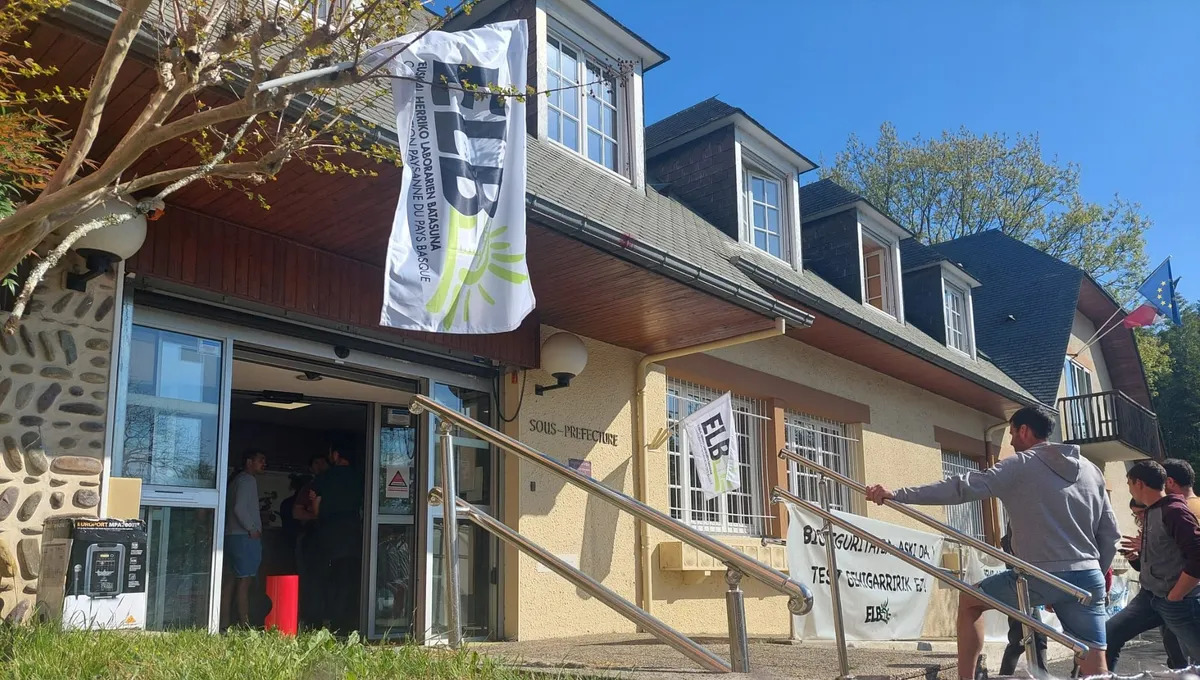"The main obstacle is not the problem of vision, but the obstacles we face to socialize"
- The ways of perceiving the world depend on each person. Do we have the same chances of reaching all areas? Several people with functional diversity in the eye have told us how they perceive reality, focusing on the difficulties they have in everyday life.
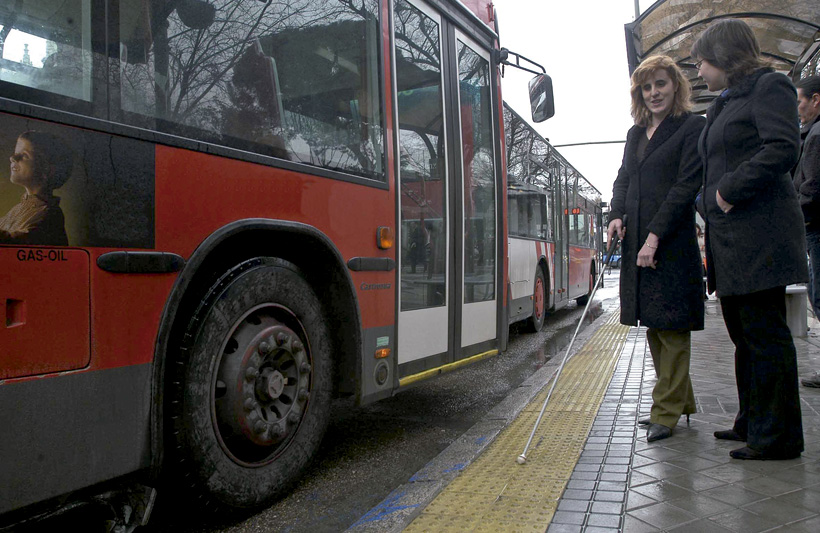
Begiris, Bizkaiko Aukera Berriak and Arabako Itxaropena associations promote the inclusion of blind or visually impaired people in Gipuzkoa.Vitoria-Gasteiz, Bilbao and Donostia-San Sebastian have met during these days to detect problems, gather information, discuss and propose proposals on accessibility in cities.
Accessibility and employment
Historically, the person with visual impairment has worked as a coupon seller at the ONCE. 90% of respondents have exercised this profession. However, the interviewees tell us that the possibilities for action are being reduced: “The coupon has fallen and there is no alternative,” says Manu Agirre of Aukera Berriak. The representative of the ONCE in the CAV, Juan Carlos Andueza, referred to the competition of the game as a reason for the changes: “The game sector is a highly competitive and dynamic sector, so we continually adapt it to our customers.”
M. Agirre, New Opportunities
“Coupon sales have declined and there is no alternative”
In the Spanish State there are 20,000 people currently engaged in the sale of coupons, according to Andueza. Joxean Txintxurreta, from the Begiris association, explains that the percentage of people with visual impairment is around 7%. He also says that nowadays people with other functional diversity and also people without disabilities work “Mobility is sought, the profile of the person moved with low disability. The blind have less and less room.” They also indicate that those who have the opportunity to work at the ONCE must do so under “precarious” conditions: “The working criteria are also being modified: temporary contracts, 70% of the base salary, productivity...”, says Agirre de Aukera Berriak.
We have been told that employment is an important instrument for sustaining life and personal autonomy, adding that in Euskal Herria there is a “precarious” possibility of working. “People who are left out of the employment sector have problems with good social integration.” Agirre and Txintxurreta have been coupon sellers. Both retirees. Agirre explained that, following a change in the Social Security Regulation, the contribution was one and a half years. That's why he retired. He described it as a “trick to make job cuts.”
“ONCE is known for creating and promoting jobs aimed at people with disabilities,” said Andueza. “In times of crisis, we assume our social commitment and create a training and job creation plan for people with disabilities.” Txintxurreta says otherwise: “The ONCE has been good years, has moved the money and has had the opportunity to seek and create new paths. Because of the crisis, it has limited its actions and exhausted its possibilities. Thus, Agirre and Txintxurreta have drawn employment in a “dark” situation.
Although those who suffer from this type of disability have been limited to selling coupons, they have added that they have more capacities: “There are three or four physiotherapists in Gipuzkoa and six or seven in Bizkaia,” explains Txintxurreta. Moreover, jobs related to mobile telephony have also been lost. “It’s now machines that do that work,” says Agirre.
Anyone who's seen these people working, I've probably seen them at ONCE. In the words of Txintxurreta, this causes mistrust in those who want to hire their employees: “They don’t know us, they haven’t seen us working. In the world of work we are no one outside the ONCE. They don't want us out of ignorance or mistrust. Public companies should take the first step, they are primarily responsible.”
Public administration intervention
Txintxurreta and Agirre have pointed out that the administrations have always placed this problem in the hands of the ONCE and that their intervention is necessary to be able to integrate into the work. “Public administrations have not made any analysis of this, nor have they come up with any solution. The situation needs to be addressed in a different way, putting the problem on the table and taking responsibility for it. The time has come to assume public responsibility.” The limits that live in the first person have been set out in a report and have been put in contact with the administrations.
J. Chinchurreta:
“In the world of work we are no one outside the ONCE. They don't know us, they receive us with mistrust. Because of this ignorance they do not want us in their own home”
Last June representatives of the three associations met with the Basque Government Minister for Employment and Social Services, Lide Amilibia. First, they told her about the situation, as she did not know her “quite well”. “They told us about Lanbide, because they offer opportunities for people with disabilities. But they didn't know that there aren't very few opportunities there for those of us who have low vision. Sometimes, after the oppositions, we have been told that we are not working for that job. They put us all in the same bag and don’t know what each one’s needs are,” said Txintxurreta. They have underlined the “need” to work to change the situation and stressed that they are making all this visible and raising awareness.
To this end, they have requested data from the Basque Government: Number of blind people in the Community, studies they have carried out, work in which they work and demand for work, etc. “We have to start from a realistic point of view to know what and how to raise it. We have to know what we are talking about,” says Txintxurreta.
Progressive society
“Public space is not available to all citizens,” says Agirre. There are changes in the cities, but they have denounced that some criteria are not taken into account and that this reduces their autonomy. They have therefore proposed measures to collect and combat the difficulties they face in daily life:
“We have worked with the City Hall to develop a design plan for the new bus station in the Donostia district of Egia. Physical handicaps have been taken into account, but for us there was no sign of orientation. Even if there are a few things left, it will be pretty good,” says Txintxurreta.
“Several buses in Bilbao use the public address to transmit information. Some people's sound systems are in poor condition, cause unpleasant noise and that puts people against it. Others don’t have that minimum,” says Agirre: “We need a device to activate megaphones, if we forget it, we can’t use it. If you're not from Bilbao, you won't have appliances. Nor do we get any sign when we go over a bus. We ask for megafonies that don’t have as many limits.” On the metro, on the other hand, there are no machines that can catch the ticket. “Once the ticket is past, there are two senses, without signaling. A braille sign would suffice. And when you go out into the street, there are also problems. The city is in the process of renewal with the design of the so-called ‘Single Platform’. Pedestrians and cars march on the same level. Without sidewalks, we don't know where we are and we lose security. There are lights that emit sound, but others still don't. We don’t know what we stand for, whether we have to stand, whether we can pass or whether there are traffic lights.”
Enjoy the culture as a whole
The members of the Begiris Group in Gipuzkoa mentioned the local culture halls. “We are working with the head of Tabakalera. It is a new room, with wheelchairs that have been taken into account for the construction of the structures, but we do not.” As for cultural programming, they have emphasized that the broadest offer is to "see", which is insufficient to listen or touch. “In the world of sculpture, for example, we can’t imagine what great images look like. But with a little model on the bottom, yes.”

They have complained that they have little chance of enjoying or training in literature and in language, and that they cannot access the new offers: “There is also a digital library in the CAPV, because we cannot consult it. On the Internet we can hardly enjoy such an important and significant oral literature in Euskera”, regrets Agirre of the Aukera Berriak association.
The great C. Walker (ONCE):
“The new technologies are not accessible, but they have advantages: with the mobile I can access the ONCE library, there are programs by voice system...”
What about technology? “You can bring opportunities if you manage well. But if it is not new technologies, roads, barriers and obstacles are built for all, discrimination and exclusion,” he added. The representative of ONCE Andueza shares the view that the new devices are not accessible. However, he also referred to the advantages: “With the mobile we can access the ONCE library. We can also benefit from programs that extend computer and phone screens or that have a voice system.” Txintxurreta sees the permanent update of applications as an obstacle: “What we have learned today is not worth tomorrow. What is now accessible will not be tomorrow. Most appliances are digital and we have management issues, like before. On the other hand, they use technology as an excuse for hiring personnel. It seems good for everyone, but not only do we go forward, but we also go back.”
Activating capabilities
Although they have implied that changes are taking place gradually, they have emerged strongly to continue working. They have insisted that we are talking about fundamental rights, not about “whims”. For example, they want to call on the public and administrations to take account of the issue and to begin to come up with solutions.
We've been told that there was a time when there was also a problem of inclusion in education. Agirre, for example, had to receive a special education in Pontevedra (Galicia). Today, children can learn in their villages. “For this effort to be carried out also outside school, we have to look for resources not to leave the bridge halfway,” says Txintxurreta. “People and relationships are fundamental in society. To deny them competence is to limit the possibilities for development. It’s a serious issue.”
Sare sozialetako argitalpen baten bidez, otsailaren 23an, Ane Santesteban txirrindulariak (Errenteria, Gipuzkoa, 1990) endometriosia daukala iragarri zuen. Diagnostikoak lagundu egin dio ulertzen zergatik batzuetan gaizki sentitzen den bizikletan: “Kisteak aldaka okertzea... [+]
The pandemic has revealed, in all its crudeness, the consequences of the neoliberal model of care for the elderly, children and the dependent population. Now is the time to consolidate the critical discourses and community alternatives that flourished during the lockdown.”... [+]
You may not know who Donald Berwick is, or why I mention him in the title of the article. The same is true, it is evident, for most of those who are participating in the current Health Pact. They don’t know what Berwick’s Triple Objective is, much less the Quadruple... [+]












